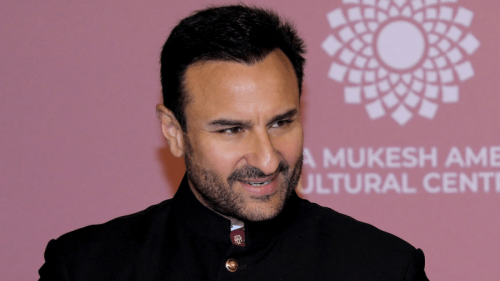LONDON: A historic conference bringing Iran and Israel together with Arab states to discuss a ban on nuclear, chemical and biological weapons in the Middle East is scheduled to take place in Helsinki in December, it has emerged.
The Finnish organisers of the UN-backed bid to establish a zone free of weapons of mass destruction are said to be cautiously optimistic that the conference will go ahead despite high tensions in the Gulf.
The Finnish team has held about 70 meetings with officials in the region and made repeated trips to Israel and Iran since the veteran diplomat Jaakko Laajava was appointed "facilitator" of the consensus in October. So far, none of the countries invited to Helsinki has turned the invitation down.
Details of the plans were discussed this week at a meeting in Qatar on non-proliferation in the Gulf organised by the British American Security Information Council (Basic). All well as the states in the region, probably including Turkey, the Helsinki conference could be attended by the five nuclear weapons states recognised under the 1968 nuclear non-proliferation treaty - the US, UK, Russia, France and China - and by relevant UN organisations such as the International Atomic Energy Agency (IAEA).
Diplomats familiar with the project say it is extremely vulnerable to events in the region, particularly to a breakout of armed conflict. But they say that if military action can be avoided for the rest of this year, no single country would want to be seen as boycotting such a diplomatic opportunity. Junior officials from Israel and Iran have attended informal meetings in recent years in Cairo and Brussels, but no representatives from either country attended the Qatar meeting this week.
Avner Cohen, an expert on the Israeli nuclear weapons programme from the Monterey Institute of International Studies, said: "The Israeli attitude is to do as little as possible about it, and to link it with progress on Iran. If they don't see progress in limiting the Iranian programme, they won't show up. They don't have a commitment to go."
Israel is generally believed to have an arsenal of 100-250 nuclear warheads, but has a policy of neither confirming nor denying its existence.
Few of those involved in organising the Helsinki conference expect Israel to give up its weapons in the near future, or even change its doctrine of deliberate ambiguity.
However, Paul Ingram, the executive director of Basic, said: "When you start a process like this, with clear objectives, it is amazing how it evolves. The process itself builds confidence and improves the atmosphere.
"Also, ordinary Israelis now recognise that a zone free of nuclear weapons is preferable to a region with two or more weapons states."
It is hoped the Helsinki conference will address regional perceptions of double standards underlying Israel's nuclear weapons monopoly set against the constant western pressure on Iran to give up uranium enrichment.
Speaking at the Qatar meeting, Hans Blix, a former IAEA director general, said he thought Iran could be coaxed into attending.
"Iran invested much money and prestige in its enrichment programme and while other countries in the world have closed valuable nuclear installations, Iran has seemed totally opposed to abandoning enrichment and other sensitive activities," Blix said. "Yet, would Iran not be tempted to do so - for say 25 years - if it were assured supply of uranium fuel for power reactors and could achieve that Israel eliminated its nuclear weapons and stocks and abandoned its sensitive nuclear activities for the same period?"
Expectations for the outcome of the Helskinki conference are low, however. The general agreement is that it would count as a success if all the states of the region turned up and agreed to have some form of follow-up meeting.
A British foreign office spokesman said the UK believed that a Middle East free of all WMD and their means of delivery was an achievable goal, and one which was vital to the long-term peace and security of the region. "But it will not happen overnight nor without the commitment and support of all states in the region," he said.
The promise to work for the creation of a WMD-free zone in the Middle East dates back to 1995, when states without nuclear weapons demanded it as part of the price for them to stay in the nuclear non-proliferation treaty (NPT) and not seek their own arsenals.
The US, Britain and Russia were given the responsibility to organise the conference but little was done until 2010 when the non-weapons states, led by Egypt, once more demanded concrete action.
Paolo Foradori, an expert on the issue at Trento University in Italy and Harvard, said: "The stakes are very high. Failure would be a blow not only to the stability of the region, but also to the future of the NPT regime."
By arrangement with the Guardian















































Dear visitor, the comments section is undergoing an overhaul and will return soon.